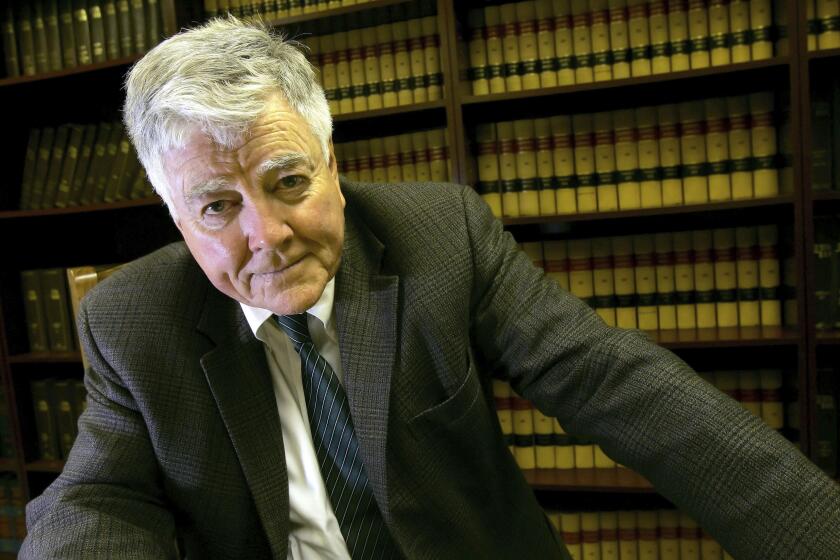Taliban Fighter Says He’s American
He said his name was Abdul Hamid. He said he came from Washington. And he said he’d been fighting for the Taliban.
Among more than 80 Taliban fighters who surrendered to Northern Alliance forces Saturday was a grimy, light-skinned fighter who said he was an American.
Abdul Hamid had a 15-minute conversation with a newsmagazine reporter as he sat with other injured Talibs in an open-bed truck and waited to be transported to a military hospital.
He said he converted to Islam at 16 and since then had studied at Islamic schools in Pakistan. He said he is now 20 and had spent the last six months fighting for the Taliban.
“The Taliban are the only government that actually provides Islamic law,” Hamid told Newsweek.
By Sunday morning, he had disappeared, apparently whisked away by U.S. military personnel.
But late Sunday, Newsweek revealed on its Web site that Hamid had been identified by his parents in the U.S. as John Philip Walker Lindh, 20, of Northern California. His mother, Marilyn Walker, said a photo of him that had appeared on the site was the first indication she had of his whereabouts since he left a religious school in northwest Pakistan seven months ago.
As many as 4,000 former Taliban fighters are in custody here, awaiting the next move in a tense game of international diplomacy.
Many are believed to be non-Afghan fighters with links to Osama bin Laden’s Al Qaeda terrorist organization. Although a formal roll call has yet to be taken, the prison’s top doctor said that about 30% of the inmates treated in his clinic do not speak any local language.
The foreigners’ presence gives international leverage to Gen. Abdul Rashid Dostum, the top military commander in northern Afghanistan, who is calling on the U.N. to accept the detainees and try them according to international law.
The prisoners are the remnants of the Taliban army in the north, which was defeated a week ago in the city of Kunduz. Apparently because Dostum had pledged to turn them over to international organizations, the fighters surrendered directly to him. Since then, they have been kept in the mud-walled prison complex in this city, Dostum’s hometown, waiting for the world to decide their fate.
The Sheberghan prison is unheated, and prisoners have been deliberately crammed into overcrowded cells to keep them warm. They mill about in a courtyard about 100 feet square, staring angrily at visitors who peer at them over the ramparts.
Late Saturday, they were joined by the approximately 86 survivors of the rebellion at Qala-i-Jangy, a different facility. Twenty, including Hamid, were sent first to the city military hospital for treatment. Hamid told Newsweek that he had gunshot wounds in both legs.
At the city’s military hospital Sunday, a nurse confirmed that an American fighter had arrived at the hospital late the previous day as part of a group of 20 wounded.
“Then two American soldiers came and looked over all the prisoners. They spoke to one in English. Then they left the others and took the American away in a car,” the nurse said.
Before he could provide more information, a doctor who identified himself as the clinic director interrupted.
“Don’t say anything about the Americans,” Dr. Mohammed Ismael Shiwa told the nurse in Uzbek, a language he apparently thought none of the translators present could understand.
“Say he’s from Tatarstan,” Shiwa said, referring to a Muslim republic inside Russia. The nurse changed his story accordingly.
A soldier at a U.S. military compound in Mazar-i-Sharif told reporters that no one was available to answer inquiries about the alleged American Taliban.
*
Times staff writer Carol J. Williams in Bonn contributed to this report.
More to Read
Start your day right
Sign up for Essential California for news, features and recommendations from the L.A. Times and beyond in your inbox six days a week.
You may occasionally receive promotional content from the Los Angeles Times.






